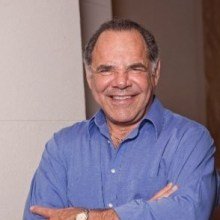Confidence over money is when you have a certainty that today, and for no matter how long you live, you will be able to maintain the lifestyle you are accustomed to and expect, no matter what.
In all the years I have practiced financial planning, one question I always ask, always get an answer to, and is surprising to many, is:
At what age do you expect to die?
Why is this question so important and why should the answer be given without a lot of thought? Generally, we have given it a lot of thought. That’s why I always get a response.
I have asked thousands of people.
I have young people in their 40’s say age 56, and I have had some say 110 even 120.
Where does the answer you give come from?
It is the accumulation of data. Statistics of your family. Your own collection of experiences and decisions. It is most often a 30 to 45 year period in those under 45, a 25 to 35 year period for those in their 50’s and 20 to 30 years for those age 60. Seventy year olds use 15 to 25 years, and eighty year olds tend to use 15 to 20.
Interestingly, these numbers follow current mortality tables. We are attuned to and in many ways controlled by statistical data we absorb.
What I have noticed over the years is that the more spiritual one is, the greater their own life expectancy.
It’s a very important question because it sets the needs boundary for the individual. It sets the capital planning parameter from which the capital need can first be determined. Using adjustment factors it enables the individual to legitimately plan to prevent the hardest of all financial hazards to plan for, living too long. Running out of money can be a reason for death.
But what about today and confidence over money?
You have to start with an exact picture of what it costs you to live. Do a budget, a real budget. One that includes everything. That means all expenditures, whether by credit or direct. It includes taxes and all necessary insurance. It includes your future needs as well. Are you creating enough for the future when you stop working? Including adjustments for not working and playing more. Ideally, the day after you stop working you will have the same income as the day before, just from a different place.
It is shocking to many, when they figure this out correctly. It is a reality check. It is a future shock that may or may not happen. Luck and good fortune may help. How much do you leave to chance? How much do you plan to solve? What role does an advisor play? Can I do everything to help myself and my family and the community without giving up control?

Les Winston
Head Spokesperson for Social Secharity
Lesley Winston, is the Spokesperson for Social Secharity.org, a program of The Endow America Network Foundation. He is a Chartered Advisor in Philanthropy and has had a distinguished career in service to philanthropists. For over a decade he influenced smart philanthropic planning with Funny Money Radio and now hosts his new web cast, “Route 664: The Road to Human Kindness!” Les can be reached at lwinston@winifs.com

Recent Comments